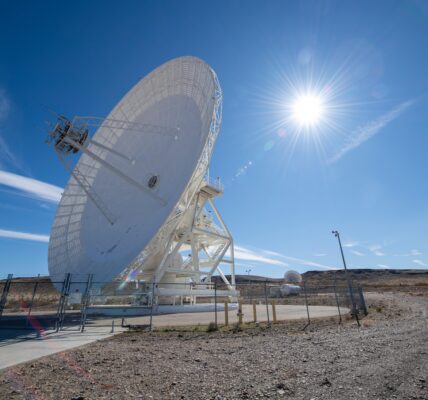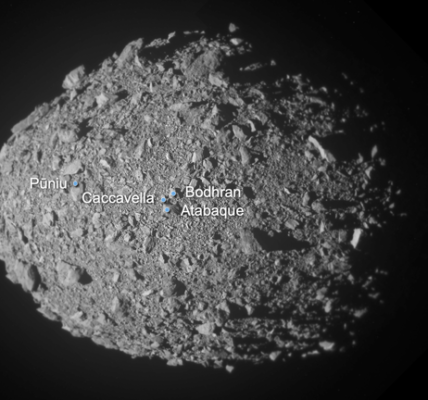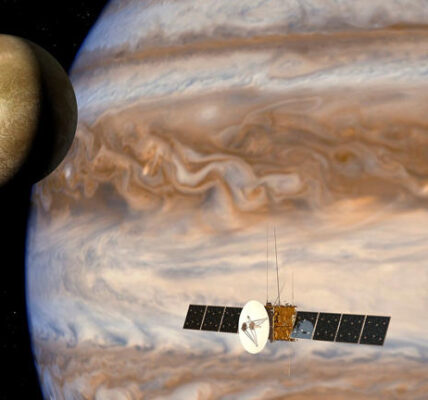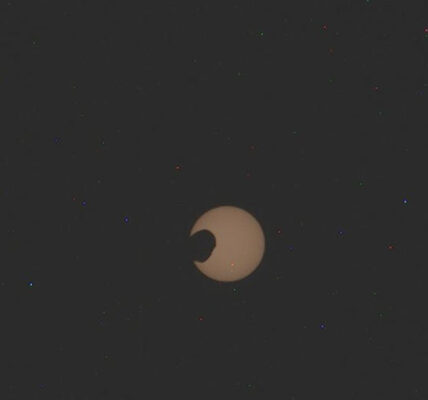James Webb Uranus Moon Discovery has revealed a brand-new hidden moon orbiting the ice giant, showing how much more there is to learn about our solar system.
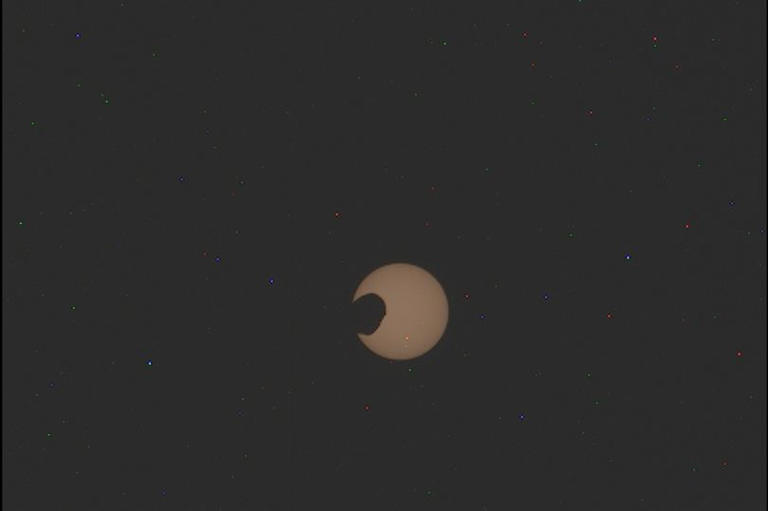
James Webb Uranus Moon Discovery: A New Hidden Moon Found
The James Webb Uranus Moon Discovery has stunned astronomers by revealing a brand-new moon orbiting Uranus, one that has remained invisible until now. This tiny moon, temporarily named S/2025 U1, adds to Uranus’ growing family of satellites, increasing the total count to 29. The discovery highlights the telescope’s extraordinary power to explore not just the distant universe but also the hidden corners of our own solar system.
A Hidden Moon Revealed
The James Webb Uranus Moon Discovery was made possible through the telescope’s advanced Near-Infrared Camera (NIRCam). Within these images, faint glimmers of sunlight reflected off a small body revealed the presence of the elusive moon.
Measuring just about 6 miles (10 kilometers) across, this moon is extremely small, making it invisible to earlier missions like Voyager 2, which passed Uranus back in 1986. For decades, scientists thought they had mapped out Uranus’ moons fairly well, but the James Webb Uranus Moon Discovery proves that much more remains hidden.
Why This Moon Matters
The James Webb Uranus Moon Discovery isn’t just another addition to the moon count. Scientists believe it offers new clues about the planet’s complicated ring and moon system. Uranus is already unique because it has 13 rings and an unusually large number of small inner moons.
Orbit and Location of the New Moon
What makes this discovery especially interesting is that the moon lies within Uranus’ dark inner rings. This placement likely explains why astronomers never noticed it before. The faintness of the moon combined with the obscuring effect of the rings meant it could only be detected with JWST’s cutting-edge infrared vision.
The Legacy of Uranus Exploration
The James Webb Uranus Moon Discovery builds on centuries of exploration. Uranus was first spotted in 1781 by Frederick William Herschel, and since then scientists have been piecing together its mysteries. Located about 1.8 billion miles (2.9 billion kilometers) from the Sun, Uranus is nearly 20 times farther from our star than Earth.
Much of what we know about this icy, tilted planet comes from NASA’s Voyager 2 flyby in 1986. That mission gave us the first close-up images of Uranus, revealing rings, moons, and its pale blue atmosphere. But now, nearly 40 years later, the James Webb Uranus Moon Discovery proves we’re still far from understanding the full picture.
Naming the New Moon
Right now, the new satellite is called S/2025 U1, but an official name will be decided by the International Astronomical Union (IAU). Traditionally, Uranus’ moons are named after characters from the works of Shakespeare and Alexander Pope. Well-known examples include Titania, Oberon, Ariel, and Miranda. The James Webb Uranus Moon Discovery will soon join this literary family with a permanent name.
What This Means for Future Discoveries
The James Webb Uranus Moon Discovery hints that there may be many more hidden moons waiting to be uncovered. This moon is even smaller and fainter than the tiniest Uranian moons known before, which means JWST has just scratched the surface.
Astronomers believe that Uranus’ inner region is much more complex than previously thought. The interaction between moons and rings could reveal details about the planet’s chaotic history, including collisions or gravitational shifts that shaped its current system.
JWST’s Expanding Role in Our Solar System
The James Webb Uranus Moon Discovery also shows that JWST isn’t only for deep space exploration. While the telescope has already delivered breathtaking images of faraway galaxies and exoplanets, this discovery shows its versatility. By spotting something so small and faint within our solar system, JWST proves it can tackle mysteries near and far.
As Maryame El Moutamid of the Southwest Research Institute noted, this discovery underscores how astronomy builds upon past missions. Voyager 2 opened the door with its flyby of Uranus in 1986, and now JWST is carrying that work forward with even sharper vision.
Looking Ahead
The James Webb Uranus Moon Discovery is a reminder that the solar system still holds many secrets. Uranus itself remains largely unexplored, with only one spacecraft having visited it directly. Future missions may one day orbit Uranus and study its rings, moons, and atmosphere in detail.
For now, JWST will continue to search for faint glimmers that could reveal even more hidden moons. Each new discovery adds to our understanding of how planets and their satellites form and evolve.
Conclusion
The James Webb Uranus Moon Discovery marks an exciting step in space exploration. By revealing a tiny moon that had escaped detection for centuries, the telescope shows us that even nearby worlds hold surprises. This discovery not only enriches our knowledge of Uranus but also inspires curiosity about what else is waiting to be found in the depths of our solar system.
Related:
3I/ATLAS Interstellar Object Mystery 7 Astonishing Revelations
